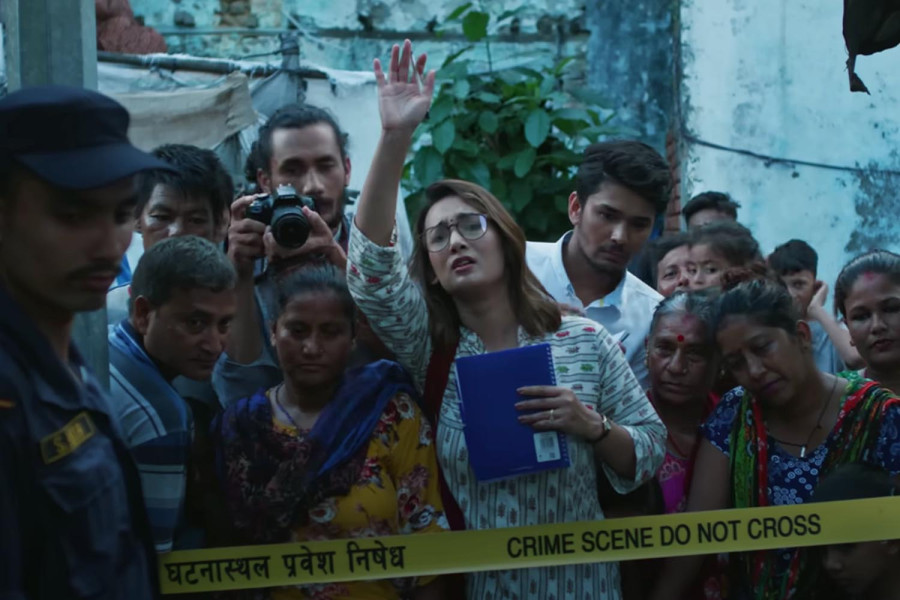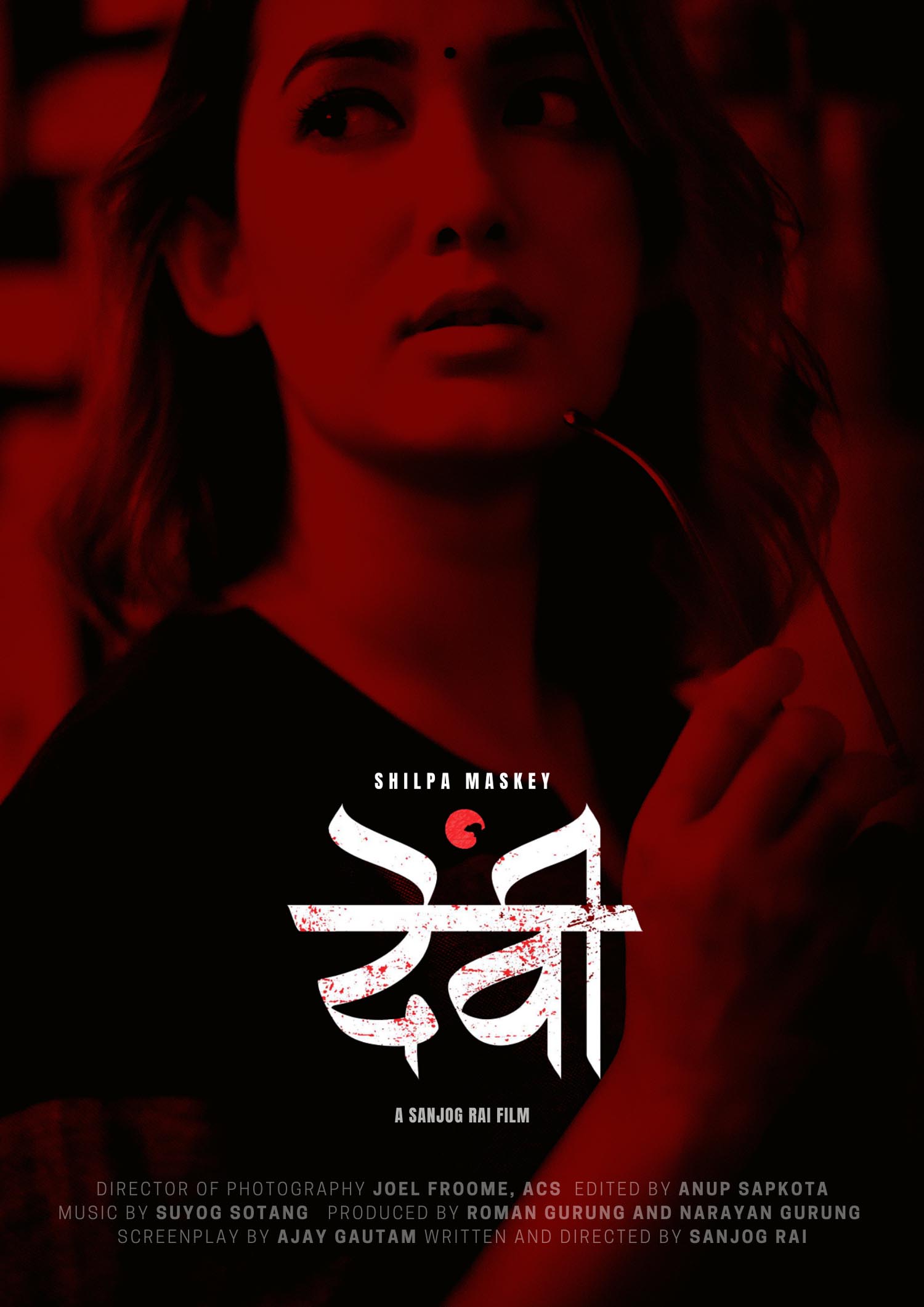Culture & Lifestyle
A crime thriller sans thrills
Sanjog Rai’s ‘Devi’ touches on pressing issues like rape and justice but struggles with pacing, dialogue, and character development.
Timila Maharjan
‘Devi’ follows the journey of Kaya (Shilpa Maskey), a journalist determined to challenge an unjust system amidst the rising number of rape cases across the country. Kaya, an orphan raised in an orphanage run by Aakash (Najir Husen) and his family, is haunted by recurring nightmares linked to her traumatic past. She and Aakash are on the verge of getting engaged.
The plot takes a turn when Kaya refuses to interview a filmmaker for an article and is reassigned to a different district to report on rape cases. There, she uncovers numerous unsolved instances in which the perpetrators remain unpunished despite being identified. The corrupt system continually denies justice to the victims and survivors. During her assignment, Kaya meets Sudir (Gaurav Pahari), a dedicated police officer who is also frustrated with the system's failure to deliver justice.
Amidst the rising number of rape cases, a series of mysterious murders begins, where the alleged rapists are killed one by one by an unidentified vigilante. The film keeps the audience guessing about the identity of the killer. As the story progresses, the truth is gradually unveiled, revealing not only the killer but also the motive and the backstories of the key characters.
The film also touches on the divisive opinion that criminals should be killed. However, it explores the moral complexity of this stance, emphasising that taking a life, even of a criminal, is a crime in itself. It questions whether the death penalty truly serves justice, suggesting that sometimes killing the perpetrator is not the ultimate solution.
The movie is short and straightforward, with a basic plot and a few surprising elements. While there are clear efforts to add suspense and thriller aspects, these alone are not enough to capture the full depth and sensitivity of the serious issues it tackles. The momentum and expectations set by the trailer fall short in the film itself. However, seeing a film like this addressing critical societal issues is commendable, even if it doesn't fully deliver on its potential.
The acting felt subdued and lacked the intensity and emotional depth a movie of this nature demands. The dialogue delivery was average and had room for improvement. Using English phrases amidst the Nepali dialogue felt awkward and out of place, making it sound unnatural. However, Gaurav Pahari's performance stood out, fitting his character well.
In some scenes, the background score was overly dominant, attempting to add depth through sound rather than relying on the strength of the scenes and the acting.
I feel this movie missed an opportunity to spark meaningful discussions about rape. With stronger scenes, dialogue, acting, and plot development, it could have been a powerful tool to raise awareness and initiate conversations in both public and media spheres. A film on such a critical issue should evoke strong emotions, leaving viewers outraged and more engaged. In Bollywood, similar films have ignited widespread societal debate and brought such issues into the mainstream. Unfortunately, this film fell short of creating that same impact.

However, the movie effectively highlighted the tendency to control information to protect those in power. It exposed the hypocrisy of the government, which remained passive during the numerous rape incidents but swiftly took action when the killer targeted suspects in influential positions. This contrast underscores the double standards, where justice is delayed for victims, but immediate measures are taken when the powerful are threatened.
I appreciated certain aspects of the cinematography, particularly how the camera angles complemented and enhanced specific scenes. However, the film lacked sufficient character development and felt rushed, ending more quickly than it should have.
The final part was disappointing, as I expected more action and drama. The villain was defeated too easily, which came across as unintentionally humorous. Although a few fight scenes attempted to build momentum and inject suspense, they ultimately failed to deliver the necessary thrill.
Overall, ‘Devi’ serves as a relevant example of an issue-based film, raising awareness about the sensitive and pressing issue of rape and bringing it to the forefront for discussion. While the movie has potential, it could have been much stronger with improved scenes, plot development, acting, and emotional depth.
Despite being labelled a crime thriller, it lacked the intense, thrilling moments expected from the genre. However, as a starting point, ‘Devi’ paves the way for future issue-based films that can highlight important societal concerns and impact audiences and society.
Devi
Director: Sanjog Rai
Cast: Shilpa Maskey, Najir Hussen, Gaurav Pahari, Tika Pahari
Duration: 97 minutes
Year: 2024
Language: Nepali




 13.12°C Kathmandu
13.12°C Kathmandu















